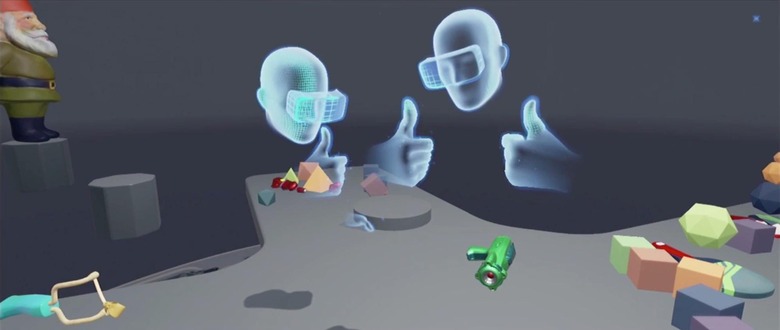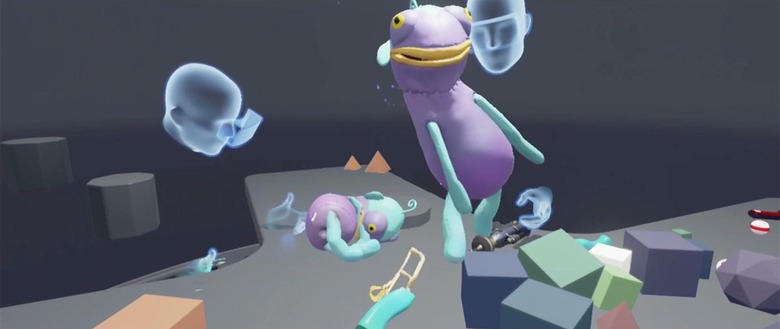Facebook's vision of social VR is ambitious and cheesy
Today you stare at your smartphone screen and stab the "Like" button on your Facebook friends' news with a fingertip; tomorrow, you might high-five them in VR. Mark Zuckerberg outlined his vision of the future of social networking in virtual reality and augmented reality today at the F8 2016 developer conference, and it's a mixture of high-tech and farce.
Facebook hasn't been coy about its ambitions for social VR. At last year's F8, indeed, Zuckerberg talked up the potential for virtual reality as a collaborative space, though its demonstration of "teleportation" into a different location left us cold.
Last month, meanwhile, Facebook-owned Oculus launched VR Social Network for the Gear VR.

The potential for immersing yourself in a virtual social space goes much further, Zuckerberg argued today, however, even if his choice of illustration was a somewhat slapstick one. The CEO pointed to Toybox, the collaborative sandbox Oculus first showed off last year to highlight the usefulness of its Touch controllers for the Rift headset, as an example of what Facebook VR might be like.
For the moment, that means being able to pass virtual blocks around, shoot each other with laser guns, and draw in a shared environment, which all seems a little like kindergarten rather than a new paradigm in socializing.
However, according to Zuckerberg, the real magic will kick in when augmented reality gathers pace. He showed off a mockup of AR glasses, promising that one day they'd be as surreptitious as regular prescription eyewear, only capable of overlaying digital content on top of the real world around you.
That might mean projecting a new baby video into the eye-line of a friend when you bump into them in the street, for instance, leaving phones in pockets and maintaining eye-contact.

Although the chief-exec fell short of announcing an AR project within Facebook, it's not hard to imagine that Oculus might be exploring its potential as a successor or parallel project to Rift.
Meanwhile, Microsoft has its HoloLens headset, an augmented reality wearable which is already shipping to developers, while startup Meta has been wowing in recent months with its second-generation AR visor.
What we haven't seen yet is a legitimately compelling social network that builds on either VR or AR, though as Oculus Rift, HTC Vive, and other headsets finally make their way into the homes of preorder customers, perhaps that broader availability to spur development of services to go along with them.
